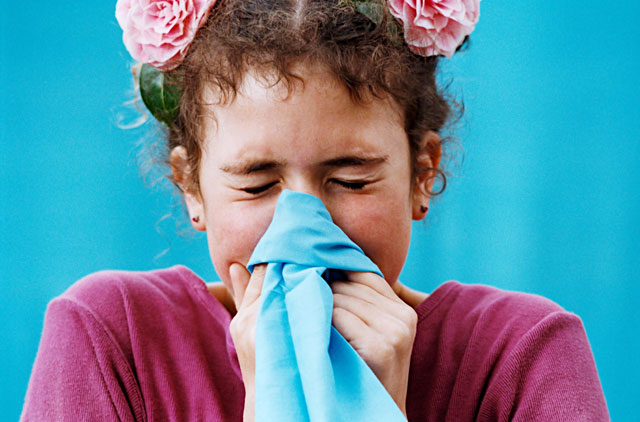Dubai: With the flu season predicted to continue till the first half of March, young children and toddlers have fallen victim to the latest wave of bacterial and viral infections in Dubai.
While 80 per cent of infectious diseases are spread by touch, nurseries are considered a place where children are most likely to catch a virus or infection from one another through simple interaction.
Dr Nitin Verma, consultant paediatrician and allergist at King’s College Hospital London, Jumeirah Medical Centre, pointed out toddlers can become infected by touching objects or surfaces that have the virus on them and then touching their mouth, nose, or eyes with unwashed hands.
Recommending frequent hand-washing as one of the most effective preventive measures, Dr Verma said teachers, caregivers and parents should try and wash their hands as well as the toddlers’ with soap and water often, specifically before and after eating and after going to the toilet.
“Toddlers are genuinely inquisitive by nature. Exploring their environment, be it at home or the nursery, is second nature to them, so hand-washing is critical to preventing the spread of germs,” she said.
Toys and other objects handled by toddlers like doorknobs, tap handles and remote controls should also be kept clean and disinfected. Dr Verma said if a sick toddler is suffering from vomiting and diarrhoea, adults should take extra care to disinfect the toilet, floor, and sink in the bathroom, and should use facial tissues to wipe off a runny nose and nasal secretions and then bin them.
For the staff in nurseries, it is vital to be able to recognise when a child is unwell in order to be able to prevent the spread of infection among other children in the nursery.
“If any child has fever, sudden onset of rashes, diarrhoea or vomiting, the staff should keep the child safe and away from other children if possible, and ask the parents to come and collect their child,” said Dr Verma.
She highlighted all staff should ideally know and understand precautions required to control the outbreak of infections and how to apply them.
Nurseries should also buy toys and equipment that can be easily cleaned, and store them in a clean container. It is important that staff don’t let children take toys into toilet areas.
Common viruses
The common viruses prevalent at this time of the year are the flu (influenza), common cold and other respiratory viruses causing breathing difficulties, cough, diarrhoea and vomiting, and those causing hand, foot and mouth infections.
“The single best way to protect against the seasonal flu and its potential severe complications is for children to get a seasonal influenza vaccine each year. Flu vaccination is recommended for all children aged six months and older,” advised Dr Verma.
All viruses tend to take about five to seven days to clear, said Dr Verma, with symptoms peaking in the first 24 to 48 hours and then slowly waning. However, viral illnesses are more troublesome to manage in day two or three of the illness.
What nurseries say
Gulf News spoke with Monica Valrani, CEO of Ladybird Nursery, who said she advises parents to let their children rest when suffering from flu.
“The time of any weather change, especially when it goes from cooler to warmer, is when we see the number of flu-ridden children increase. After the summer break is another time when people have come back from their holiday, and it is common for them to bring in different viruses from various countries,” she said.
Valrani explained it is extremely common for viruses to spread at nurseries and schools, as children are in close contact with each other all the time. However, parents should allow their child to rest and recover at home, and not rush to bring them back to school.
“Ensure that they receive plenty of rest to conserve their energy for a speedy recovery. By letting them stay home, it not only helps them recover quicker, but also helps minimise the spread of contagious germs,” she added.
Valrani pointed out her nursery is particular about cleanliness, and all toys and surfaces are disinfected at the end of everyday to minimise the spread of flu and germs.
Vandana Gandhi, CEO and founder of British Orchard Nursery, highlighted that children tend to get sick a lot in the first several years of life as their bodies are building immunity to infections.
“Nurseries should have strict policies and procedures in place to promote good hygiene and reduce the risk of virus. Some of these can include sanitising toys, doors, handles, and changing tables, as well as having a school nurse taking temperatures of students each morning at random,” she told Gulf News.
Gandhi also explained the nursery provides medical fact sheets of information to parents so they are informed about different illnesses.
“This includes information such as the symptoms associated with the illness, the recommended treatment and any other advice related to the illness their child has,” said Gandhi.
While supporting the need for a child to recover at home, she said depending on the illness, a medical clearance certificate may be required from the doctor to confirm that the child is well enough to be able to return to school.
Should I let my child go to nursery or not?
When it comes to making a decision on whether your child should go to school or stay at home, Dr Nitin Verma, consultant paediatrician and allergist, shared a few simple rules.
Make your toddlers stay at home if they:
Have a fever — stay home for at least 24 hours after the fever is gone
Have diarrhoea and vomiting — should be kept away from the nursery for at least 48 hours after the last bout of diarrhoea or vomiting
Have skin rashes — can be the first sign of many infectious illnesses such as chickenpox and measles. Children with these conditions shouldn’t attend nursery until the rashes are checked by a paediatrician or family medicine consultant
Toddlers can go to school if they:
Have a runny nose and a bit of a cough
Have a condition that could not be passed on to other children or nursery staff










